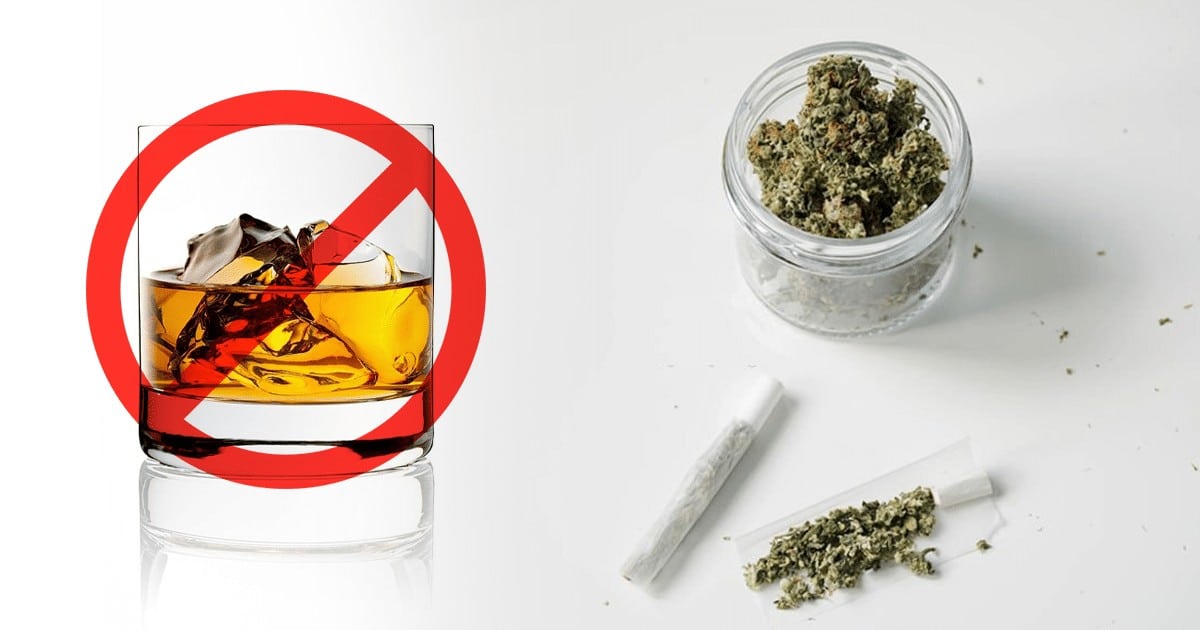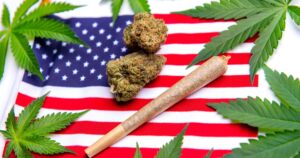According to a new study conducted at the University of Washington, marijuana legalization is linked to lower use of alcohol, nicotine, and non-prescription opioids among young individuals.
Researchers looked at data on substance usage patterns from 2014 to 2019, and discovered that people aged 21 to 25 were less likely to use more harmful drugs after the state legalized cannabis.
A Solution To The Opioid Epidemic
Washington State was hit hard by the opioid epidemic: in 2015, more people died from opioid overdoses than from motor vehicle accidents. Doctors across the United States prescribed opiates like they were candy, and in turn, every 1 in 4 medical patients now suffer from active addiction. Due to the large supply of legal opiates, the black market became saturated as well, and soon Washington, like the rest of the US, had a massive problem on their hands.
In June 2017, the Attorney General’s Office, in collaboration with the Washington State Patrol and the Washington Association of Prosecuting Attorneys, convened law enforcement, public health specialists, prosecutors, and medical professionals at the University of Washington to form a summit. This summit consisted of multiple seminars focusing on drug monitoring to health care fraud field operations, sharing local innovations and best practices from throughout the country, and another is proposed for the year 2022.
Since cannabis legalization, however, there has been a 25% decrease in overall opioid-related deaths. This comes as a pleasant surprise to most marijuana advocates. In a blog post by marijuana advocacy group NORML, Deputy Director Paul Armentano remarked, “Real-world data from legalization states undermines longtime notions that cannabis is some type of ‘gateway’ substance… [but] In fact, cannabis regulation has been linked to a reduction in the use of other narcotics, including several prescription pharmaceuticals.”
A study by the University of Washington reflects NORML’s conclusions. “Contrary to fears about spillover effects, the legalization of nonmedical cannabis coincided with declines in alcohol and cigarette use, as well as abuse of pain relievers,” says the study abstract. “The diminishing relationship of cannabis use with the use of other substances among individuals aged 21–25 necessitates further investigation, although it may indicate a greater relevance of cannabis-specific preventive and treatment initiatives,” it concluded.
Cannabis As A Treatment Option For Addicts
In 2021, scientists concluded that cannabis could actually serve as a functional replacement for opioid treatment, noting that in 2019, a study concluded that states with legal marijuana saw a decrease in opioid prescriptions. Researchers found that cannabis can also mitigate withdrawal symptoms, easing the severity and risks associated with quitting.
The significance of endocannabinoid CB1 receptors in the rewarding effects of opioids and the reduction of tolerance is well established by scientific literature. Exogenous CB1 agonists specifically can effectively relieve somatic symptoms such as escape jumps, diarrhea, weight loss, and tremors.
According to a study by the National Institute of Health, “the mechanisms of cannabinoid antinociception are remarkably similar to those of opioid analgesics. Both the CB1 and MOR are G-protein coupled receptors, and agonist-initiated disinhibition of GABA release in the descending pain pathway is just one example of overlapping antinociceptive mechanisms between these drugs.” In laymen’s terms, CB1 (cannabis) and MOR (morphine) share similar protein builds and relieve pain in the body in the same way. This is compelling evidence for further mechanistic characterization of CB1 agonism as a therapeutic target for opioid withdrawal.
You can read more about ongoing cannabis research for opioid withdrawal on our blog.
Current FDA-approved opioid replacement therapies like methadone or buprenorphine are notoriously difficult to access, nor are they risk-free. The demand far outweighs the current supply, and unfortunately, their success rate is not convincing either. The other currently available option is to quit cold turkey, which has an 85% rate of failure.
Cannabis, however, has been extensively explored as an analgesic alternative to prevent opioid misuse and overdose while simultaneously mitigating withdrawal symptoms and even preventing usage.
These conclusions were not drawn by just one study: the efficacy of cannabis in treating opioid dependency has been well researched over the past several years. Research institutions across the country have concluded that cannabis is, in fact, a safe alternative to traditional opiates in the treatment of pain.
The myth of reefer madness is slowly falling out of favor as both scientists and governing bodies open themselves up to the very real benefits of cannabis. Viewing cannabis as a harm reduction tool instead of a threat to public health and safety is a crucial shift in the public consciousness, and we’re excited to see how marijuana will be used in the future.
Enjoyed that first hit? Come chill with us every week at the Friday Sesh for a freshly packed bowl of the week’s best cannabis news!
- Delaware’s Recreational Cannabis Market Finally Set to Launch After Years of Challenges
- Excise Tax Increase to 19% and Its Impact on California Retailers
- Nebraska’s Governor Approves Emergency Medical Cannabis Regulations
- We Must Advocate for Fair and Accurate Marijuana Impairment Testing Policies
- The Global Roots of Plant Medicine: Why Cannabis Has Always Been Part of the Plan
- Hawaii’s HB 302 Becomes Law After Governor’s Unexpected Reversal














